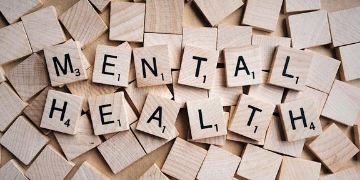Behavioral Health

Behavioral health is a major public health issue in the District of Columbia. Sadly, many of the legislative and regulatory initiatives around behavioral health are tied to other public health concerns, such as opioid addiction, maternal mortality, and health equity.
In partnership with the Washington Psychiatric Society, AMA, and American Psychiatric Association (APA), MSDC works to ensure that patients receive appropriate support for behavioral health issues, that the practice of psychiatry is supported in the District, and that psychiatrists are available to patients in the District.
MSDC was a proud supporter of the Behavioral Health Parity Act of 2017, which enshrined into law that all health plans offered by an insurance carrier meet federal requirements of the Wellstone/Domenici Mental Health Parity and Addiction Equity Act of 2008.
MSDC Statements and Testimony of Behavioral Health Issues
25th Council period information coming soon
-
 AMA Survey: Payers Failing to Fulfill Prior Auth Promises
AMA Survey: Payers Failing to Fulfill Prior Auth PromisesMay 26, 2022
Despite promises to reform the prior auth process nationally, survey data shows many insurers still fail to comply with consensus changes meant to improve patient care.
Continue Reading -
 MSDC and Coalition Request Prior Auth Hearing
MSDC and Coalition Request Prior Auth HearingMay 18, 2022
The letter signed by numerous national and local associations requests a hearing on B24-655 before the Council's summer recess.
Continue Reading -
 MSDC Joins Groundbreaking Celebration for East End Hospital
MSDC Joins Groundbreaking Celebration for East End HospitalFebruary 17, 2022
MSDC celebrates the new hospital but cautions it is not a cure-all for health inequity in Wards 7 and 8.
Continue Reading -
 Report: Insurers Falling Short on Mental Health Parity
Report: Insurers Falling Short on Mental Health ParityJanuary 31, 2022
Payers are supposed to treat mental health like physical health, but the report shows many still differentiate in coverage.
Continue Reading -
 2022 Looks to Be A Very Busy Year in Physician Advocacy
2022 Looks to Be A Very Busy Year in Physician AdvocacyJanuary 4, 2022
Physicians will need to be strong advocates for and against the major issues MSDC expects the DC Council to debate this calendar year.
Continue Reading
Sample of Legislation MSDC is Tracking in Behavioral Health
(see the whole list of bills here)
What does it do? The bill requires licensed health providers to complete 2 hours of CME on suicide prevention, assessment, and screening.
MSDC position: MSDC opposes the bill as written as the language does not encourage physician wellbeing or sufficient awareness of suicide prevention.
Current status: The bill had a hearing with the Committee on Health on June 10.
